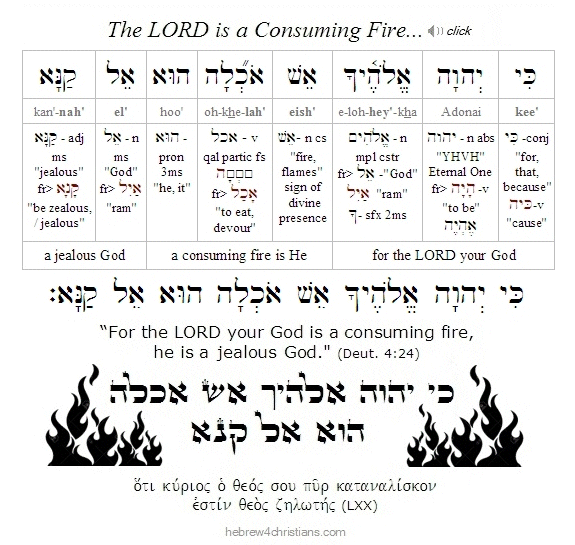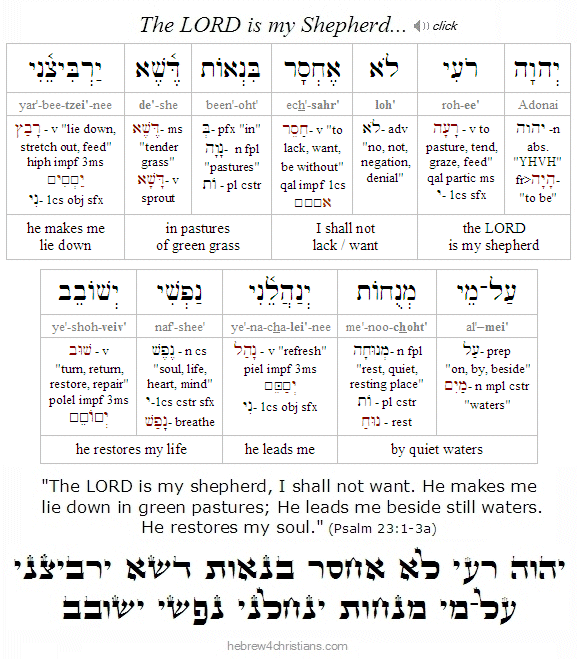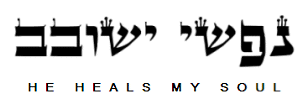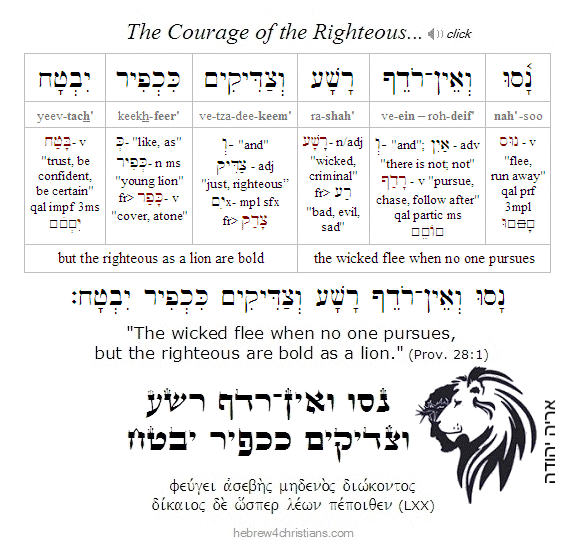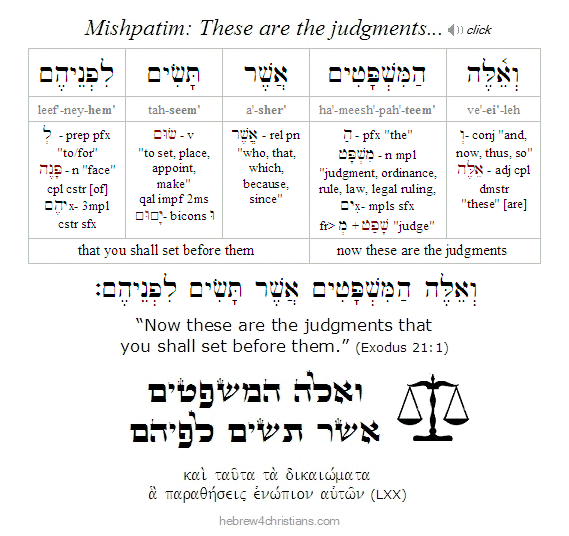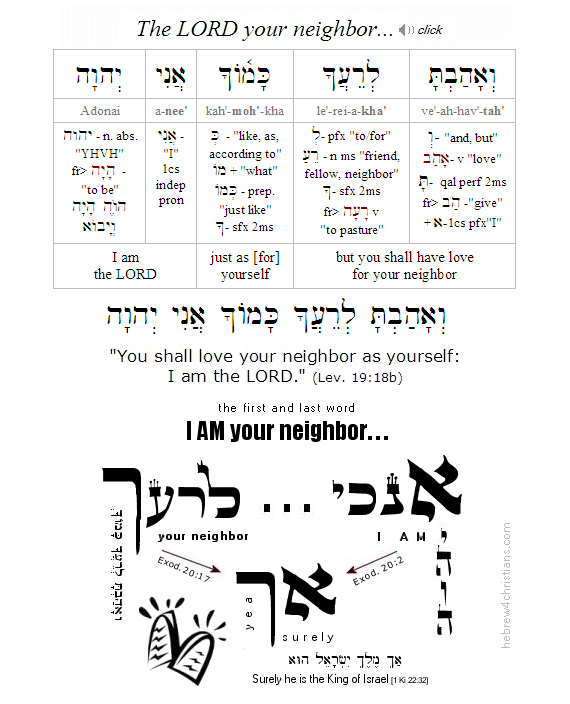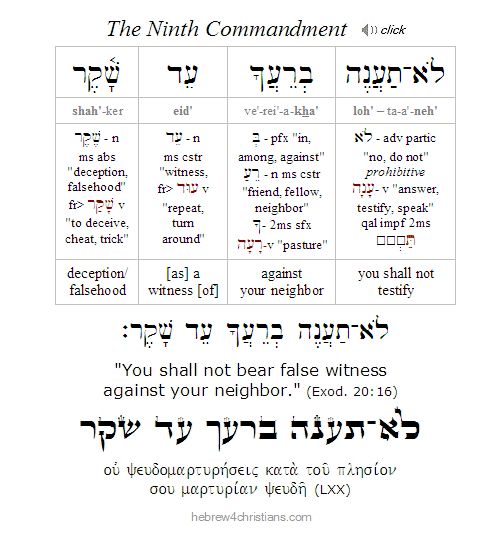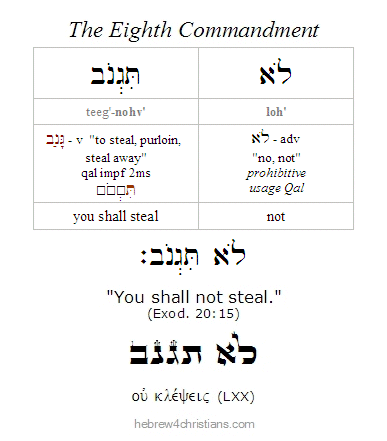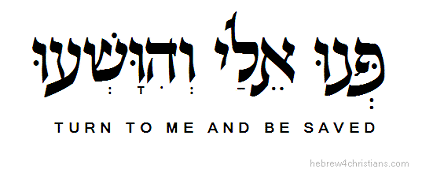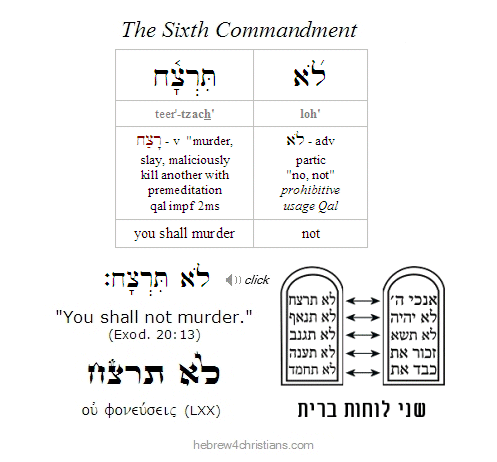|
February 2024 Updates (continued)
Note: If any page content appears to be missing, please refresh the page...
His Consuming Fire...
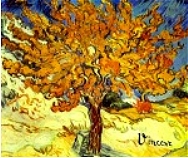
02.07.24 (Shevat 28, 5784) From our Torah portion this week (Mishpatim) we read: "Now the appearance of the glory of the LORD was like a consuming fire on the top of the mountain in the sight of the people of Israel" (Exod. 24:17). Now some people regard this fire as a threat, even a sign of God's judgment, though it is better to regard it as a sign of God's glorious passion. After all, the pillar of fire had led the people out of bondage, just as it later dwelt between the cherubim upon the Ark of the Covenant. Indeed the fire that fell upon followers of Yeshua at Pentecost was the same manifestation of the glory of God's passionate love that was revealed at Sinai. Our God is a "consuming fire" (i.e., esh okhelah: אֵשׁ אכְלָה), which means that He is full of passion that your heart fully belongs to Him...
כִּי יְהוָה אֱלֹהֶיךָ אֵשׁ אֹכְלָה
הוּא אֵל קַנָּא
kee · Adonai · e·loh·hey'·kha · eish · oh·khe·lah
hoo · el · kan·nah

"For the LORD your God is a consuming fire,
he is a zealous God." (Deut. 4:24)

The metaphor that God is a Consuming Fire suggests that He is both indescribable and passionately concerned with our devotion to Him. "Therefore let us be grateful for receiving a kingdom that cannot be shaken, and thus let us offer to God acceptable worship, with reverence and awe, for our God is a consuming fire" (Heb. 12:28-29). We are promised a kingdom that cannot be shaken, wherein the Fire that consumes will consume all things that are not established by our Heavenly Father... "Know therefore today, and lay it to your heart, that the LORD is God in heaven above and on the earth beneath; there is no other. Therefore you shall keep his statutes and his commandments, which I command you today..." (Deut. 4:39-40). Our lives on the altar ascend to God in praise.
Keep the Faith (לִשְׁמוֹר אֱמוּנִים)
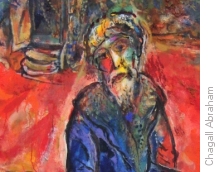
[ "Salvation is free, but discipleship will cost you your life." - Dietrich Bonhoeffer ]
02.07.24 (Shevat 28, 5784) When Israel believed the report of the faithless spies, Moses commented: "You were not willing to ascend (וְלא אֲבִיתֶם לַעֲלת), but became embittered (מָרָה) against the Word of the LORD your God" (Deut. 1:26). Moses' rebuke was not that the people were afraid to conquer the land as much as that they had lost heart and no longer desired to take hold of God's promise. The people gave up their dream; they forsook their hope; and they had lost the "devotion of their youth, their love as a bride, how they followed the LORD in the desert, into a land not sown" (Jer. 2:2). The people's failure was on two levels: First they lapsed in faith by abdicating trust in God's word, and second, they had lost the passion of their first love. From this we learn that the greater problem is that of losing heart, since the heart directs the will to believe in the miracle of God -- or not.
Moses' rebuke of the people's heart condition recalls the sober warning Yeshua gave to the Ephesian believers: "I know your works, your toil and your patient endurance, and how you cannot bear with those who are evil, but have tested those who call themselves apostles and are not, and found them to be false. I know you are enduring patiently and bearing up for my name's sake, and you have not grown weary. But I have this against you, that you have abandoned the love you had at first. Remember therefore from where you have fallen; repent, and do the works you did at first. If not, I will come to you and remove your menorah from its place, unless you repent" (Rev. 2:2-5). Likewise the author of the Book of Hebrews commented: "And to whom did he swear that they would not enter his rest, but to those who were disobedient? And with whom was he provoked for forty years? Was it not with those who sinned, whose bodies fell in the desert? So we see that they were unable to enter because of unbelief" (Heb. 3:17-19). The question of our faith is essential: "It is a fearful thing to fall into the hands of the living God" (Heb. 10:31).
Hebrew Lesson
Psalm 119:10 Hebrew reading:
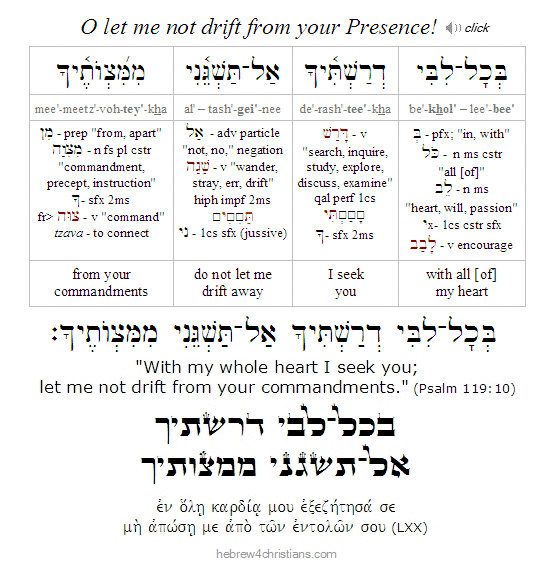 |
The Great King over All...

02.07.24 (Shevat 28, 5784) The world may be in a frenzy over various earthly concerns and fears, but we are to understand that the LORD God of Israel is upon the throne, friends. As it says in our Scriptures: "For the LORD, the Most High, is to be feared, He is the great king over all the earth" (Psalm 47:2).
Those of faith understand history - including the End of Days - as the expression of God's sovereign and providential hand. The gracious Savior always works "all things together for the good" of those who are trusting in Him (Rom. 8:28). Ein od milvado (אין עוד מלבדו) - there is no power that can be exercised apart from God's consent and overarching will. Indeed all authority in heaven and earth belongs to Yeshua, the "the Ruler of the Kings of the earth" (עליון למלכי הארץ). As it is written, "All the nations you have made shall come and worship before you, O Lord, and shall glorify your name" (Psalm 86:9).
So relax and "let God be God" over all things in heaven and earth! Trust that there is no real power apart from Him... Shalom chaverim.
Hebrew Lesson
Psalm 47:2 reading (click):
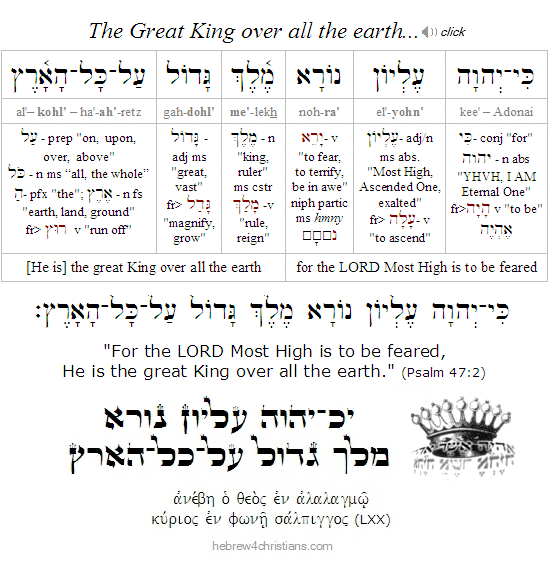 |
The Shepherd of your Soul...

[ "Trust the past to God's mercy, the present to God's love, and the future to God's providence." - Augustine of Hippo ]
02.07.24 (Shevat 28, 5784) Whenever you feel oppressed by sorrows, heartache, or fears, affirm with solemn assurance: "The Lord cares for me." Cast your burden upon Him and he will hold you up. Refuse to stagger beneath the weight of earthly fears...
God cares for you. This is the message of the gospel, after all; this is the meaning of the cross itself: God Himself cares for you...
Consider the one who personally bore your very sins and terribly suffered in anguish for you to be fully forgiven and accepted by Heaven: This beloved one will never forsake you, but indeed forever lives to make intercession for you (Heb. 7:25). Be bold, therefore, to avail yourself before the throne of mercy, where we are given grace to help in time of need.
The Lord has not forgotten you; he will never leave you nor forsake you. He who feeds the birds of the air and tends the lilies of the field will surely provide for your needs. All who belong to him are forever made secure by the indomitable glory of his perfect love.
Let us then resist the whispers of despair. Affirm the greatness of God who watches over your way as the Good Shepherd of your very soul. Even if you are in distress, affirm the greatness of God and confess the truth of His love for you. Overlook the present moment to find refuge in his promise.Trust him to bind up your wounds and heal your broken heart. God is your strength and song! Do not countenance any thought that his grace is not present for your need and troubles. God is forever faithful; his promises are sure; the one who has begun a good work in you will perfect it: press on in confidence of your Shepherd's care...
Hebrew Lesson
Psalm 23:1-3 reading (click):
Saved by Hope...

[ Hope is about the possible, despair is about the impossible, and therefore despair is the precondition for the miracle of salvation, because it confesses the impossibility of salvation apart from the miracle of love... ]
02.06.24 (Shevat 27, 5784) The word of God teaches that we are "saved by hope" (i.e., Τῇ ἐλπίδι ἐσώθημεν; Rom. 8:24). Such hope affirms that the divine healing of the Savior pervades all things and we can rejoice in the blessing of eternal life. Despair, on the other hand, sees no way out. Despair is a dark conviction of hopelessness that leads to sorrow, depression, and anger. It dwells on what apparently cannot be changed and therefore concludes that change is not possible. The way of despair teaches that you are ultimately victim. Hope, on the other hand, believes that change is genuinely possible - even in the worst of circumstances - and therefore it refuses to let despair have the last word. Hope wrestles through the darkness and refuses to let go until the blessing comes. It perseveres; it endures; and it overcomes: As the prophet Job testified in his grave darkness: "For I know that my Redeemer lives, and at the latter day he will stand upon the earth. And even after my skin has been destroyed, yet in my flesh I will see God - whom I shall see for myself, and my eyes shall behold, and not another. My heart faints within me!" (Job 19:25-27).
Friend, if you are in despair, turn open your heart to hope. Believe the "impossible." Quiet your heart and listen for the invitation: "Come unto me, you who suffer, and I will give you rest." Faith gropes in the darkness, reaches out in hope, and finds courage in the conviction that the lonely wound of your heart, the thought that you are unwanted, unimportant, and unacceptable, is not the truth about who you really are, but on the contrary, you are terribly loved, forgiven, and welcomed before God, and that there is place prepared for you, an eternal place of home, life, and blessing. Do not let despair consume your heart in grief. "All shall be well, and all manner of thing shall be made well." Can you believe it? Are you willing to open your heart to the possibility of God's love that will make you whole?
Hebrew Lesson
Job 19:25-26 Hebrew reading:
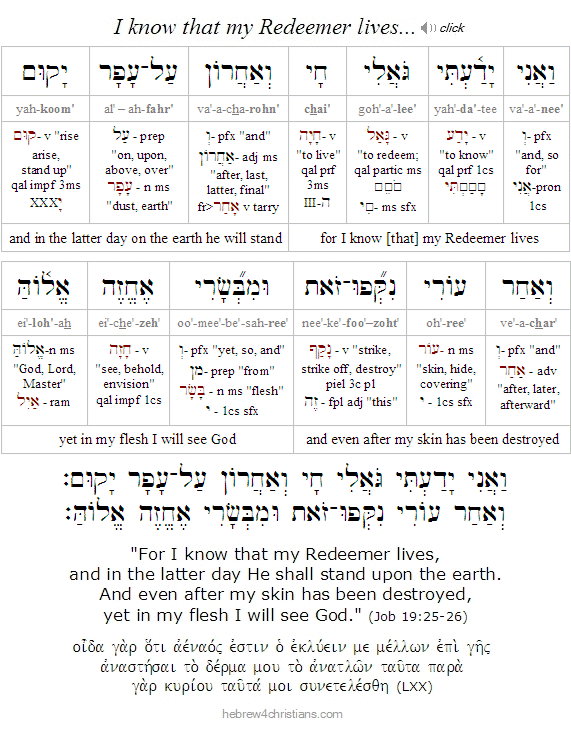 |
A Torah of Empathy...
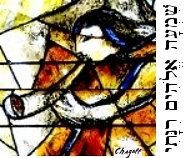
02.06.24 (Shevat 27, 5784) The "silver rule" of Torah may be stated as, "Do not do to others as you would not have them do to you," (i.e., "do no harm"), whereas the "golden rule" may be stated positively as, "Do to others as they would have done to them" (i.e., "do the good"). Both principles are based on the concept of reciprocity: How you treat others affects who you are, and vice-versa, and therefore we see the centrality of respecting ourselves, of regarding ourselves as redeemable, lovable, and so on. "You shall not wrong or oppress a stranger, for you were strangers in the land of Egypt" (Exod. 22:20), and this includes the stranger you make of yourself; the parts of yourself you hide away from consciousness.
Moral sense is grounded in empathy, or the exercise of sympathetic imagination... "Give and it shall be given back to you." Put yourself in the place of the other - the stranger, the outsider, the lost child - and remember the pain you experienced when you were an outsider, isolated and excluded... As we recognize the value, dignity, and worth of others, so we will find it within our own hearts, and this enables us to see more of the good. The measure you use will be measured back to you (Luke 6:38).
There is an old Chassidic story of two men sitting and enjoying a drink together. One of them then says to the other, "You know, you're my best friend. I really love you, brother!" The other man responds, "Oh yeah? If you really love me, tell me where I hurt..."
The point of this simple story is that we can't really say we love someone without taking the time to know them -- and that means knowing how they suffer. Most of us are suffering, of course, but are we able to transcend our own pain to genuinely empathize with others? Conversely, how many people do we trust enough to to confide our own pains and heartaches? The Law of Messiah (תוֹרת המשׁיח) is to bear one another's burdens (τα βαρη, "weights," Gal. 6:2), and that means making ourselves vulnerable -- and making room inside our hearts for the vulnerability of others.
James tells us that personal healing comes from confessing outwardly (εξομολογεισθε) our sins (τας αμαρτιας) to one another so that we may be healed (James 5:16). Of course it's humbling to share our sins, our failures, and our hurts to another, but without an audience for the inner voice of our pain, we suffer all the more... "We are only as sick as the secrets we keep."
If someone loves us, they will know "where we hurt"; and if we love them, we will know where they hurt, too. This same principle can also be applied to our relationship to Yeshua... We take comfort that Yeshua sticks closer to us than a brother (יֵשׁ אֹהֵב דָּבֵק מֵאָח), interceding on our behalf and "knowing where we hurt." But if we say that we truly love him, are we are not thereby claiming that we know him and "where he hurts?"
Does Yeshua suffer today? The Apostle Paul wrote: "Now I rejoice in my sufferings for your sake, and in my flesh I am filling up what is lacking in Christ's afflictions (τὰ ὑστερήματα τῶν θλίψεων) for the sake of his body, that is, the church" (Col. 1:24). What is "lacking in Christ's afflictions" is our present sacrifice for the sake of others... Yeshua hungers with those who are hungry, thirsts with those who are thirsty, feels loneliness with those who are abandoned, shivers with those who are cold, weeps with those who are forlorn, is imprisoned with those who are incarcerated, is sick with those who are ill, and so on (Matt. 25:31-ff). Yeshua feels the pain of even the "least of these my brothers." This is where he hurts, chaverim...
Hebrew Lesson
Psalm 116:1-2 reading (click for audio):
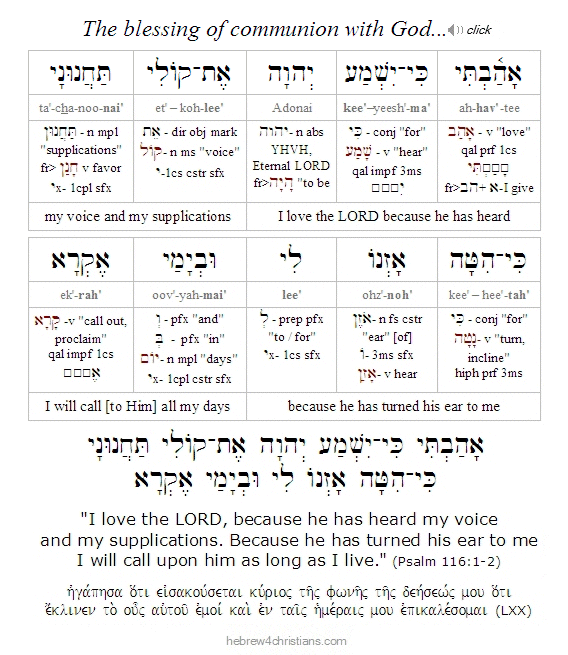 |
Being Present before God...
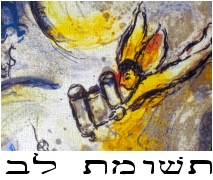
02.06.24 (Shevat 27, 5784) It is easy enough to hurry past words of Scripture without slowing down to reflect on what is being said. For instance, in Torah portion Mishpatim we read: "The LORD said to Moses, "Come up to me on the mountain and wait there, that I may give you the tablets of stone with the law and the commandment, which I have written for their instruction" (Exod. 24:12). The Hebrew words ve'heyei sham (וֶהְיֵה־שָׁם), usually translated as "and wait there," can also be translated as "and be there." But why -- if every jot and tittle of Torah is indeed significant (Matt. 5:18) -- does the text say "come up to the mountain" and then add the superfluous phrase "and be there"? The sages answer that God is asking Moses to be present, be awake, and to be utterly focused – "with all your heart, soul, and might." This teaches us that to receive God's revelation, we need to show up – "to be there" – earnestly seeking his heart.
The first duty of the heart is to believe in the miracle of God's love for you, and the second is to stay awake, and to keep believing in that love, even in your ascent into the dark cloud of the unknown... Are you "showing up" in the secret place of your heart?
Hebrew Lesson
Exodus 24:12a Hebrew reading:
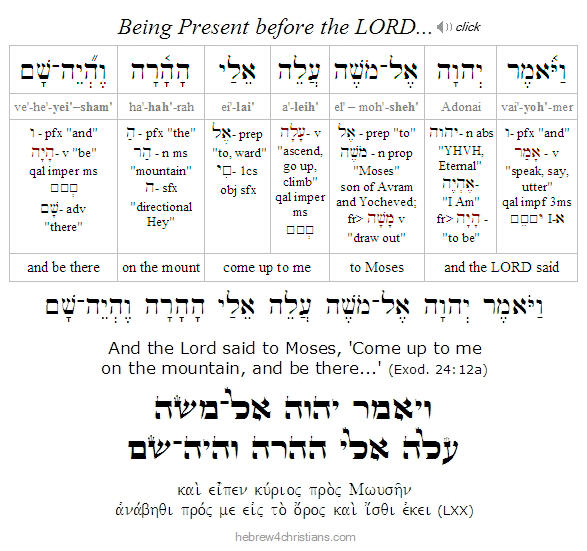 |
The Fight of your Life...
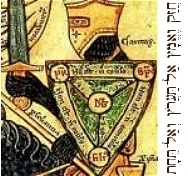
[ "The question is not, 'To be or not to be,' it is what we should be until we are not..."
- Soren Aabye Kierkegaard ]
02.05.24 (Shevat 26, 5784) Shalom friends. Because we are in the midst of a raging spiritual war, it is imperative to gird your mind and heart with the truth (John 17:17). Keep yourself armed for the battle and be aware of the common strategies of the enemy of your soul (2 Cor. 2:11). Trust in God's power to deliver you from evil (1 Cor. 10:13). Be resolute in your convictions, refusing to yield to worldly pressures to compromise your faith in the name of supposed "tolerance." It is not loving to suppress the truth of Yeshua or to minimize the truth claims of our Messiah's vision of reality.
Fight the good fight of faith, and take hold of those spiritual weapons that are "mighty through God to the pulling down of strongholds" (2 Cor. 10:4). Always be ready to yield every thought to the obedience of your LORD (2 Cor. 10:4). Know that this is the fight for your life, friend. The Prince of Peace (שַׂר־שָׁלוֹם) came to make peace between God and sinners through his sacrificial blood, but he did so by means of a terrible conflict with the powers of darkness, and his message still offends those enslaved by pride and fear...
The devil provides weapons for those in his service, namely violence, lies of darkness, the impudence of pride, and vain seductions of this world, and therefore it behooves us to avail ourselves of the weapons of faith received by the agency of the Spirit of God (Eph. 6:11-18). Be sober and vigilant because your adversary (ἀντίδικος) prowls about like a roaring lion, seeking someone to devour. Resist him, firm in your faith, knowing that the same experiences of suffering are being accomplished by your brethren who are in the world" (1 Pet. 5:7-8). Yield yourself to God, resist the the wicked one will flee from you (James 4:7). The end of all things draws near: stay awake and call upon the Name of the LORD.
Hebrew Lesson
Proverbs 28:1 Hebrew reading:
No Fear in Love...
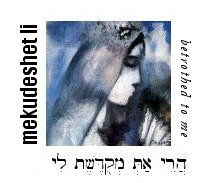
02.05.24 (Shevat 26, 5784) This week's Torah reading (i.e., parashat Mishpatim) concerns various social and civil laws of ancient Israel. Regarding the opening statement of the portion: "And these are the judgments (הַמִּשְׁפָּטִים) which you shall set before them" (Exod. 21:1), the sages state that this means there must be the recognition of basic social obligation between man and his fellow man before the obligation between man and God can be affirmed (see Matt. 5:23-24). This foundational idea may be summed up as, "respect precedes Torah" (דרך ארץ קדמה לתורה), since without any form of brotherhood, unity, or basic civility, we are left with anarchy, anomie, and despair...
As we move closer to the prophesied "End of Days" (אַחֲרִית הַיָּמִים), the world is becoming more and more a place of anarchy, anomie, and despair. Civil law is flouted and every person does "what is right in his own eyes." The storm clouds are gathering, chaverim....
Nonetheless Scripture admonishes us: "There is no fear in love, but perfect love casts out fear" (1 John 4:18). Fear and faith are antithetical, but if you're anything like me, you struggle with fear. The Greek New Testament says that "perfected love" (ἡ τελεία ἀγάπη) "casts out fear" since it is rooted in the idea of punishment (κόλασις). The verse goes on to say that the one who keeps fearing has not been brought to maturity with regard to love.
My fears often center on the future, for example, regarding the matters of providing for my family, being a good parent, husband, etc. The prospect of the "End of Days" makes me more than a little concerned about the moral and spiritual condition of this country. I sometimes find myself anxiously thinking of my childrens' future. Regardless, there is one thing we can (and must) do to fortify ourselves in these perilous times, and that is to renew our faith and to reaffirm our convictions. "When in the dark night of suffering worldly wisdom cannot see a handbreadth ahead of it, then faith can see God, since faith sees best in the dark" (Soren Kierkegaard). "Faith sees best in the dark," which is to say that it closes its eyes to this world and its thinking to apprehend the truth of eternity. As it is written: "For we walk by faith, not by sight" (2 Cor. 5:7). If you feel tempted to surrender to the despair of worldly thinking, redouble your efforts to study the Scriptures and hold to the truth that sets you free. Make time to study the Torah and the words of Yeshua our Savior!
Hebrew Lesson
Psalm 46:1-2 Hebrew reading:
Connecting with God's Will...
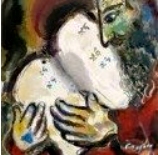
[ "Reason is itself a matter of faith. It is an act of faith to assert that our thoughts have any relation to reality at all." - Gilbert K. Chesterton ]
02.04.24 (Shevat 25, 5784) In general, people don't like to be told what to do but would rather make their own judgments... However the various moral rules of Torah may be likened to guideposts along the way, warning us about dangers up ahead. And just as a physical law like gravity describes material reality, so a moral law describes spiritual reality. We can no more deny moral reality than we can deny physical reality, though the effect of violating moral truth is not physical but spiritual - affecting our inner life, our conscience, our sense of value, and so on. In either case, however, we deny reality at our own peril.
Many "laws" serve as empirical generalizations, of course. In science, for instance, we inductively sample phenomena and then universalize our hypothesis as a "law" that is (tentatively) applicable in all similarly controlled conditions -- at least until proven otherwise. In the case of moral reality, however, our methods of knowing are different. We do not use inductive reasoning to see what is right or wrong, but instead use moral principles that are "hard-wired" into our souls that we bring to experience...
We do not have to empirically determine through observation whether murder is wrong, for instance, since we know it is wrong both by revelation ("Thou shalt not murder"), and by the light of moral intuition as well. In some cases Biblical revelation is intuitively obvious. For example, premeditated murder of another person is morally wrong in any conceivable circumstance. The same made be said of torture, sexual crimes, treason, deception, and so on. The rational test here may be expressed by Immanuel Kant's "categorical imperative," that is, to see if you can consistently will your action to be a universal law of nature or not. Stealing, for instance, is irrational because if everyone were to steal, the concept of private property would be destroyed. Likewise lying is irrational because it presupposes the validity and significance of truth, and if everyone lied, then truth itself would be meaningless. This is the basis, after all of both the "Silver Rule" ("Do not do to others what you would not want done to yourself") and the "Golden Rule" ("Do to others as you would want done to yourself"). In both cases reciprocity is universalized and the test is to see if the action is devoid of special pleading and the biases of self-interest.
No culture in the history of the world has ever celebrated traitors, cowards, liars, thieves, political tyrants, murderers, rapists, those who brutalize the innocent, and so on. And every culture has instinctively valued life, truth-telling, courage, honor, generosity, and so on. C.S. Lewis calls the belief that "certain attitudes are really true, and others really false, to the kind of thing the universe is and the kind of things we are" the Tao, or the "Way" that is intuited by simple refection about the nature of reality.
Now on the other hand, there are some (very) qualified exceptions to our basic moral intuitions. For instance, the moral universal to "always speak truth" may be "broken" (or temporarily suspended) for the sake of a more important truth. For instance, if we deceived a psychopath armed with an axe who sought to murder someone, we would be exempt from the basic rule to always speak the truth by misleading him. In Jewish thought this is called "pikuach nefesh" (פיקוח נפש), which means "saving a soul." This principle is grounded in the verse from the Torah that says: "You shall keep my statutes and my judgments; which if a person does them he shall find life in them: I am the LORD" (Lev. 18:5).
There are "weightier matters" of Torah that imply showing mercy rather than following the "letter of the law" (Matt. 23:23; Micah 6:8). Yeshua often used the Sabbath day as a test case, and he pointed to commonsense exceptions to the law when mercy was needed more than religious practices (Hosea 6:6). He mentioned giving water to a thirsty donkey or rescuing a sheep that fell into a well as examples (Luke 13:15, Matt. 12:11). And Yeshua regularly denounced those Pharisees who fancied themselves to be "gatekeepers" of Torah as prime examples those who miss the point. He said, "The Sabbath was made for man, and not man for the Sabbath: therefore the Son of man is Lord also of the Sabbath" (Mark 2:27-28). To make his point, he went into a synagogue and publicly instructed a man with a withered hand to stand up. Yeshua then said to the Pharisees present: "Is it lawful on the Sabbath to do good or to do harm, to save life or to kill?" But they were silent. After looking around at them in anger, grieved by the hardness of their hearts, he said to the man, "Stretch out your hand." He stretched it out, and his hand was restored." Upon seeing this, the Pharisees "left immediately and began plotting how they could kill him" (Mark 3:1-6).
Mishpatim (מִשְׁפָּטִים) refer to judgments we inevitably must make in life, and what is required is practical discernment, that is, being able to balance the ideals of justice and love. It is often a struggle to strike the right balance, and the temptation is to lean to one side or the other. We might stress strict justice in the heat of outrage over a transgression, or we might stress unconditional love because of our own need for forgiveness. The Torah, however, as well as Yeshua, emphasizes kindness over matters of justice. For instance in our Torah portion we read: "If you lend money to any of my people who are poor among you, you shall not be like a moneylender to him; you shall not charge him interest. If you ever take your neighbor's garment as a pledge, you shall return it to him before the sun goes down, for that is his only covering, it is his garment for his skin. What will he sleep in? And it will be that when he cries to Me, I will hear - כִּי־חַנּוּן אָנִי - for I am gracious" (Exod. 22:25-27). Note that empathy for the needs of others is important, for the "essence of the Torah is mercy."
There are so many law, rules, ordinances, and "mishpatim" given in Torah that it almost seems overwhelming, though I think this is intended to wake us up to how delicate the balance must be to ensure godly choices. All our social interactions require careful discernment and wisdom from God. Our choices and actions have eternal significance and the mishpatim remind us of this truth. Just as the Shema invites us to love God in every experience, so the mishpatim invite us to do so in all our choices...
Moral and social rules speak to our need for boundaries, for sacred space, safety, and provide the means to show respect to one another. That's the "spirit of the law," the deeper reason for its expression. The "role of the rule" is to promote and upbuild life; a righteous interpretation of the use of a rule helps us discern how to limit and redirect our impulses to express godly character. "If we live in the Spirit, let us also walk in the Spirit" (Gal. 5:25).
Hebrew Lesson
Leviticus 18:5 reading (click for audio):
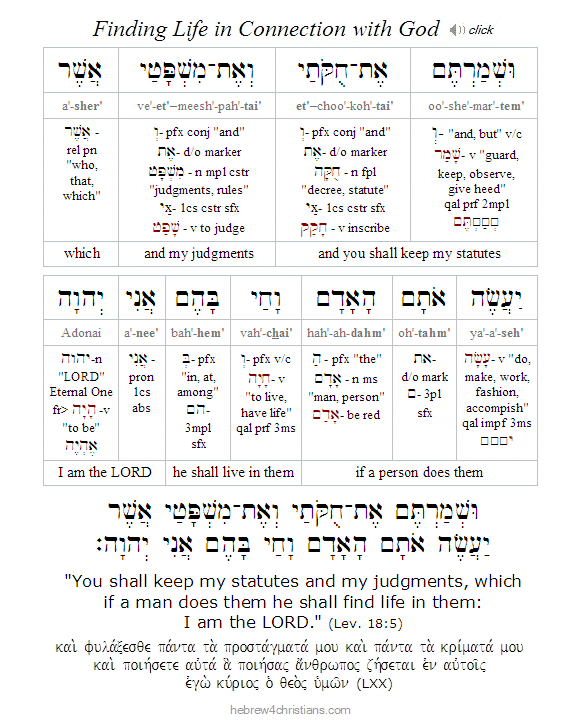 |
Note: A somewhat mixed case, involving both physical and spiritual reality, is given in our Torah reading this week: "You shall be sacred to me (קדֶשׁ תִּהְיוּן לִי); therefore you shall not eat any flesh that is torn by beasts in the field" (Exod. 22:31). Why not eat such meat? Because it may both cause physical sickness (i.e., disease) while it also violates the dignity of our life, causing spiritual sickness, too.
This Week's Torah:
Parashat Mishpatim...
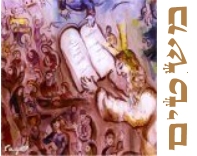
[ After the LORD spoke the Ten Commandments to Israel, He called Moses up to Sinai again, this time for 40 days and 40 nights, to teach him details of the commandments and how they were to be applied. The 6th section of the Book of Exodus provides a sampling of these various rules (called "mishpatim" in Hebrew) that God instructed Moses at that time. ]
02.04.24 (Shevat 25, 5784) Shavuah tov! Last week we read in the Torah that exactly seven weeks after the Exodus from Egypt (i.e., 49 days from the first Passover), Moses gathered the Israelites at the foot of Mount Sinai to enter into covenant with the LORD. In a dramatic display of thunder, lightning, billowing smoke and fire, the LORD descended upon the mountain and recited the Ten Commandments (or Ten Declarations) to the people. Upon hearing the awesome Voice of God, however, the people shrank back in fear and begged Moses to be their mediator before God. The people then stood far off, while Moses alone drew near to the thick darkness to receive further instructions from the LORD.
In this week's Torah reading (i.e., Mishpatim, Exod. 21:1-24:18) we learn about these additional instructions that Moses received on the mountain. The Jewish sages traditionally count 53 distinct commandments in this portion of the Torah, easily making it one of the most "legalistic" (i.e., law-focused) sections of the entire Bible. Civil laws, liability laws, criminal laws, agricultural laws, financial laws, family purity laws, Sabbath laws, and holiday laws are all given in this portion. These various social and civil laws are called "mishpatim" (מִשְׁפָּטִים), the plural form of the masculine noun mishpat (מִשְׁפָּט), meaning a "judgment," "ordinance," "law" or legal ruling. The word derives from the verb shafat (שָׁפַט) meaning to judge or govern. A shofet (שׁוֹפֵט) is the Hebrew word for "judge," and the LORD is called Ha-Shofet kol ha'aretz (הֲשׁפֵט כָּל־הָאָרֶץ) -- the "Judge of all the earth" who loves justice (Gen. 18:25, 37:28, Psalm 50:6, 94:2). In this connection note that the mishpatim became the basis for the tradition application of Jewish case law as well as for halakhah. According to common Jewish tradition, mishpatim are ethical judgments (or laws) given for a clearly specified reason (i.e., logical laws), as opposed to chukkim (חֻקִּים) which are divine fiats or decrees. An example of a mishpat would be the commandment to give charity or the prohibitions against theft and murder. These mitzvot (commandments) are inherently rational since the denial of their validity would make civil life impossible.
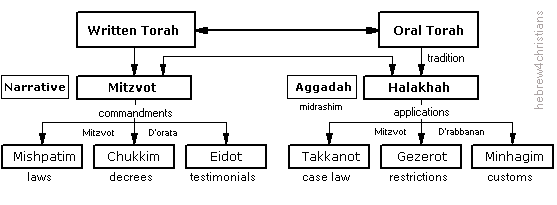 |
After receiving these additional rules, Moses descended Sinai and went before the people to explain the words of the LORD. Upon hearing the details, the people responded in unison, "all the words which the LORD has said we will do" (כּל־הַדְּבָרִים אֲשֶׁר־דִּבֶּר יְהוָה נַעֲשֶׂה). Moses then wrote down the words of the covenant into a separate scroll (sefer habrit), built an altar at the foot of Sinai, and ordered sacrifices to the LORD to be made. He then took the sacrificial blood from the offerings, threw half upon the altar, and read the scroll of the covenant to the people. The people ratified the covenant by saying, "all that the LORD says we will do and obey" (i.e., na'aseh ve'nishmah: נַעֲשֶׂה וְנִשְׁמָע). Upon hearing this, Moses took the other half of the sacrificial blood and threw it on the people saying, "Behold the blood of the covenant that the LORD has made with you in accordance with all these words" (Heb. 9:18). After this ceremony, Moses, Aaron, and seventy of the elders of Israel ascended Mount Sinai to eat a "covenant affirmation meal" between Israel and the LORD.
Upon returning from the mountain with the elders, the LORD commanded Moses to go back up to receive the tablets of stone inscribed with the Ten Commandments. On the seventh day there, he heard the Voice of the LORD calling to him from the midst of the cloud of glory, and then entered into the Presence of the LORD. He remained on the mountain for a total of forty days and forty nights receiving further revelation about the Mishkan (i.e., Tabernacle) while the Israelites waited for him at the camp down below.
Hebrew Lesson
Exodus 21:1 Hebrew reading:
Hearing the Word of Love
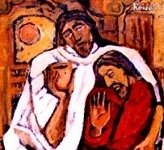
02.04.24 (Shevat 25, 5784) We sometimes "hear" others without really listening to them, usually because our attention is consumed with our own thoughts and feelings, or we tend to filter out what we don't want to hear. The spiritual life, however, is decidedly one of attentive listening. "Shema Yisrael" is a summons of the heart to turn away from the profane to heed the sacred call of God. The invitation of the Shema is to passionately love God with all our heart, soul, and strength, and to heed the truth of love in all your ways (Deut. 6:4-5).
A verse from the Torah (parashat Yitro) relates God's appeal to Israel to become a people who listen with their heart: "Now therefore, if you will indeed obey my voice and keep my covenant, you shall be my treasured possession" (Exod. 19:5). The Hebrew grammar here is intense. The phrase often translated as "if you will indeed obey" uses an emphatic construction, "if hearing you will hear" (אִם־שָׁמוֹעַ תִּשְׁמְעוּ), which suggests a sincere willingness to listen for the voice of the LORD. That is why the LORD speaks kol demamah dakkah (בְּקוֹל דְּמָמָה דַקָּה), that is, in a quiet whisper, because a quiet and listening heart is required to hear what the Spirit is saying. Actively listening to the whisper of God enables you to walk as his beloved child, segulah (סְגֻלָּה), a treasured person.
Hebrew Lesson
Exodus 19:5a Hebrew reading:
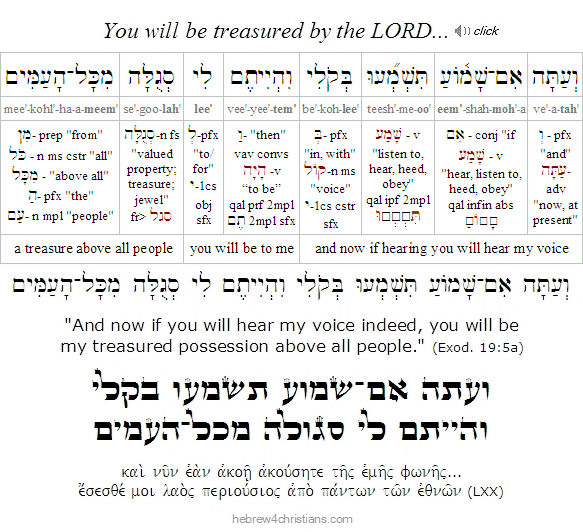 |
The great commandment of Torah (i.e., divine wisdom) is always shema, "listen," because sincere listening requires that we surrender our self-centered perspective and immerse ourselves within the meaning and needs of another. Listening opens us to God's heart in all things, and therefore is essential for the "conversation" between our soul and the LORD. The act of listening is a sign of love, and that's why we feel so lonely when we have no one willing to hear our words. Many people are quick to speak but precious few sacrifice themselves through selfless listening. The spiritual life, however, ultimately is shared life: We can do together what we cannot do individually. Yeshua prayed that we would know how much we need one another (John 17:21-23). The first step is to listen to God.
Genuine listening creates a sense of trust and connection between people. When real listening is going on, there is no need to "talk over" the other person, because the listener "speaks" through his or her respectful silence...Spiritual listening is "set apart," holy, and hears the words spoken from the heart in a place of refuge.
God never asks of us what He does not do... If He urges us to listen to Him, to heed the voice of His love, then we can trust that He likewise listens to us and will answer the call of our hearts for Him. Regarding the Shema, "holy listening" involves more than just hearing with the physical ear, of course, but hearing with heart: "You shall love... you shall talk of God's love at all times, in all places, and know Him in all you do (Deut. 6:5-9).
We are able to listen to God by the agency of God's Spirit. God's words are breathed out and made alive to us in a mysterious way (John 3:8; 6:33). And just as God breathed into us the "breath of life" to become a living soul, so Yeshua breathes into us the Holy Spirit to quicken eternal life within us (John 20:22). Communing with God and others means breathing out the words of life that were first breathed into us.
"O LORD, please speak to my heart today... What do you want me to hear?"
Hebrew Lesson
Deut. 6:4 Hebrew reading (with commentary):
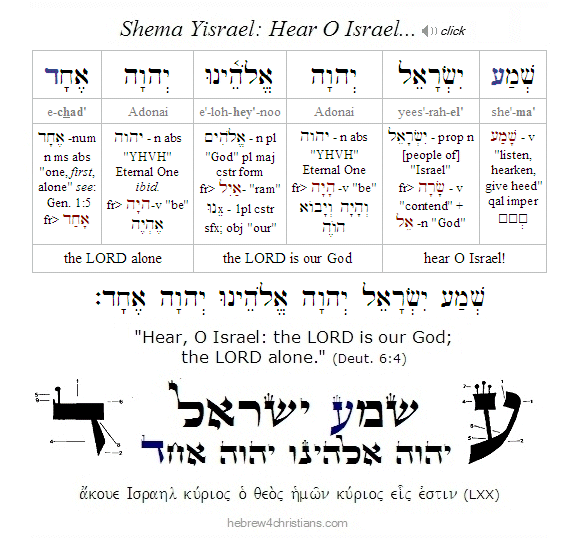 |
Unto the Heart of Heaven...
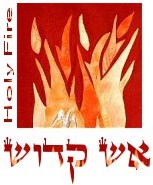
02.02.24 (Shevat 23, 5784) In the Torah (portion Vaetchanan), Moses recalled the awesome revelation of the Torah at Sinai, describing how the mountain "burned with fire unto the heart of heaven" (בּעֵר בָּאֵשׁ עַד־לֵב הַשָּׁמַיִם) when the Ten Commandments were inscribed upon the two tablets of testimony (Deut. 4:11-13). In this connection the sages say that the tablets represented a heart, as it says, "write them on the tablet of your heart" (Prov. 3:3), and God's word is likened to a consuming fire that reveals the great passion of his heart for us (Jer. 23:29; Deut. 4:24).
Tragically, the two tablets were smashed after the people lost sight of the heart of heaven (i.e., lev ha'shamayim: לב השמים), and therefore God requires a broken heart - teshuvah - to behold his glory once again. Therefore we see that Yeshua died of a broken heart upon the cross for our return to God, when the fire of his passion burned unto the very heart of heaven, and in his self sacrifice (מסירת הנפש) we see the greater glory of God...
Shabbat shalom and peace to you, chaverim...
Hebrew Lesson
Proverbs 3:3 reading (click):
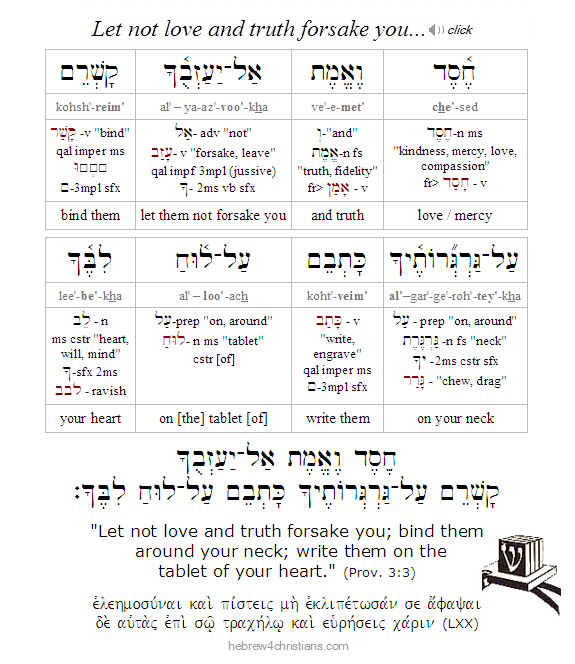 |
The Mitzvah Connection...
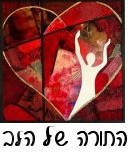
[ The following is related to this week's Torah reading and the giving of the law at Sinai... ]
02.02.24 (Shevat 23, 5784) The Hebrew word "mitzvah" (מִצְוָה) is often translated as "commandment," though its basic idea is about connection to God (i.e., the root צוה means to bind or unite). Being connected with the Almighty means talking with him, relating to him as your heavenly Father, and trusting that he esteems you as his beloved child. Whatever else you may think about the commandments of God, this idea of a love connection is foundational and essential. The very first of the Ten Commandments is anochi Adonai Elohekha, "I am the Lord your God," which invites you to open your heart to receive the touch of the Spirit of God. There is no love like that of the Lord, but you can't feel that love if you don't speak to Him, pouring out your heart and clinging to the truth of his love for you....
Hebrew Lesson
Psalm 62:8 Hebrew reading:
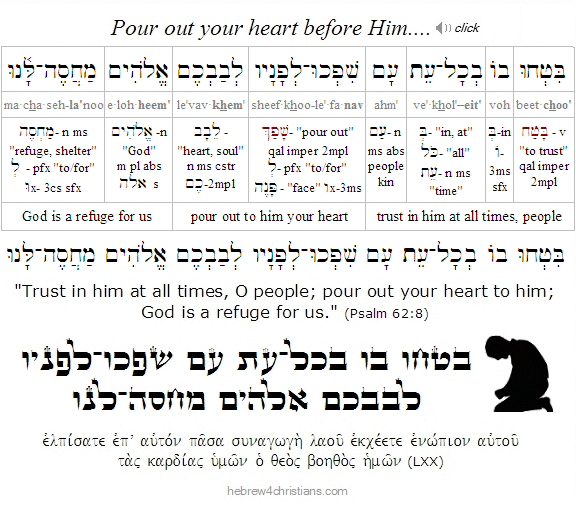 |
Pouring out your heart to God in an honest, transparent, and earnest way is sometimes called hitbodedut (הִתְבּוֹדְדוּת). After we "talk our hearts out" before the Lord, in our emptiness we can begin to truly listen, as it says, "In returning and rest you shall be saved; in quietness and in trust shall be your strength" (Isa. 30:15). Only after we sigh deeply and surrender are we receptive to the voice of the Spirit's whisper. "Blessed are all those who wait for Him" (Isa. 30:18). We wait, we abide, even when God takes his time or does not immediately intervene. We do not lose heart, for we find strength when we trust in God's love... The Light of the world still shines: Yeshua, be my inner word, my heart, and my groaning for life today, and forevermore, amen.
Since the essence of Torah is connection to God, the greatest blessing is to be filled with a steadfast desire to draw close to him, to experience hunger and thirst (visceral yearning) for God's presence and touch. Holy desire – expressed in the yearning of heartfelt prayer – is therefore a state of true blessedness, and the more desperate our need for God the more blessed we are. It is our desire, our holy need, that creates a bond between our soul and its Creator, and that is the deeper meaning of mitzvah... "Blessed are those who hunger and thirst for righteousness, for they shall be satisfied" (Matt. 5:6).
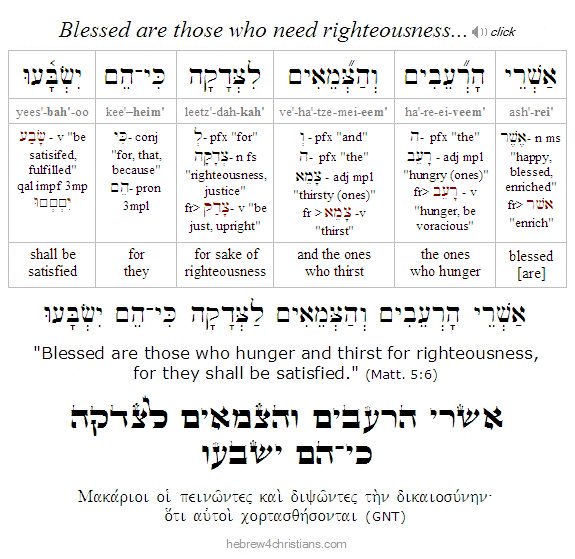 |
Ten Matters of Heart....

02.02.24 (Shevat 23, 5784) The Ten Commandments (i.e., עֲשֶׂרֶת הַדִבְּרוֹת, literally, "the ten declarations") may be summarized this way: 1) "I AM your only deliverer, the One who loves and chooses you; 2) love me exclusively; 3) regard my love as sacred; 4) rest in me; 5) honor your life and its history. Do no harm to others: 6) forsake anger, 7) abandon lust, 8) respect others, 9) abhor lying, and 10) refuse greed and envy. Know that you belong to me and that you are accepted. Love others as you are also loved.
The "heart of the law" is the Torah of love, just as the "law of love" is the Torah of the Gospel (John 15:12). "Teach me the whole Torah, a heathen said, while I stand on one foot. Shammai cursed and drove the man away. He went to Hillel. Hillel said, What is hateful to you, do not do to anyone else: that is the whole Torah. The rest will follow – go now and learn it." As the Apostle Paul taught: "For the whole law is fulfilled in one word: Ve'ahavta: "You shall love your neighbor as yourself" (Gal. 5:14). Love does no wrong to a neighbor; therefore love is the fulfilling of the law" (Rom. 13:10).
The sages have said that when the Holy One spoke to the people of Israel, each one felt personally spoken to by God, and thus it says in the singular, 'I am the Eternal One, your God'" (Midrash Shemot Rabbah). Indeed the very first commandment given at Sinai was to accept the reality of our personal deliverance by the LORD: "I am the LORD your God, who brought you (singular) out of the land of Egypt, out of the house of slavery" (Exod. 20:2). In fact, God used the second person singular (not plural) for all the verbs throughout the Ten Commandments: "you (singular) shall have no other gods beside me"; "you (singular) shall not take the Name of the LORD your God in vain," and so on. The very first commandment, however, is the starting point for all that follows. Until you are personally willing to accept the LORD as your God and to trust Him as your own Deliverer and King, the rest of the commandments are not likely to be heeded.
God began the Ten Commandments by saying, "I AM the LORD your God, who brought you out of the land of Egypt, the house of slavery" (Exod. 20:2), rather than saying, "I AM the LORD your God, Creator of heaven and earth" (Gen. 1:1). The LORD refers to himself as our Savior first, since creation is designed to demonstrate His redemptive love given through Yeshua, the "Lamb slain from the foundation of the world" (Rev. 13:8; 1 Pet. 1:18-20; Eph. 1:4; 2 Tim. 1:9). "All things were created by Him (i.e., Yeshua), and for Him" and in Him all things consist (συνεστηκεν, lit. "stick together") (Col. 1:16-17). Creation therefore begins and ends with the love of God as manifested in the Person of Yeshua our Messiah, the great Lamb of God... He is the Center of Creation - the Aleph and Tav - the Beginning and the End (Isa. 44:6; Rev. 1:17). All the world was created for the Messiah: "For from him and through him and to him are all things. To him be glory forever. Amen" (Rom. 11:36).
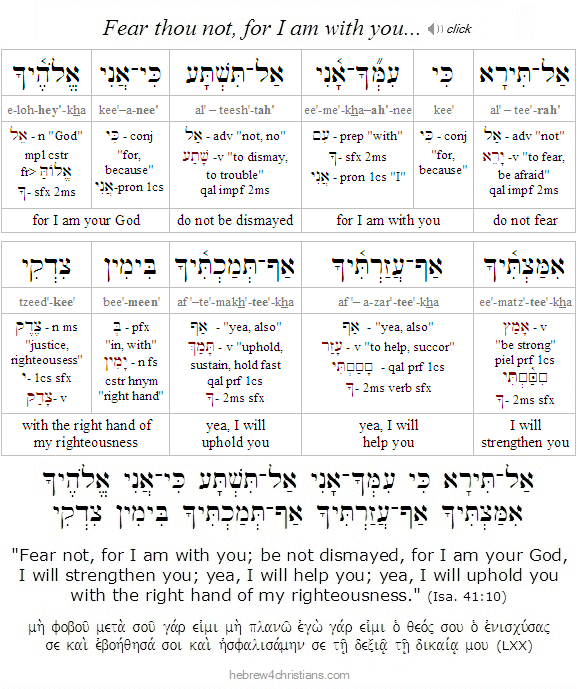 |
Hebrew for Christians Podcast

Torah of the Neighbor...
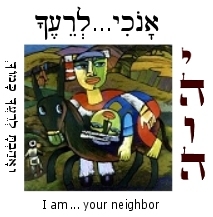
02.02.24 (Shevat 23, 5784) The Ten Commandments are often divided into two basic groups or categories. The first five commandments are said to be "between man and God" (i.e., ben adam le'chavero: בֵּין אָדָם לְחֲבֵרוֹ), and contain 146 words; whereas the second five are said to be "between man and other people" (i.e., ben adam la'Makom: בֵּין אָדָם לְמָקוֹם), and contain 26 words, the same value as the Name of God, YHVH (יהוה). In this connection we note that the Ten Commandments begin with "I AM" (אָנכִי) and end with "[for] your neighbor" (לְרֵעֶךָ), which when joined together says, "I AM your neighbor." In other words, the LORD Himself is also found in your neighbor... When we love our neighbor as ourselves (אָהַבְתָּ לְרֵעֲךָ כָּמוֹךָ), we are demonstrate our love for God. But who, then, is your neighbor? You are -- to every other soul you may encounter this day (Luke 10:36).
Hebrew Lesson
Leviticus 19:18b reading (click for audio):
Note: I should add that loving others is impossible without first receiving (inwardly accepting and making your reality) who you are as the "beloved of the Lord..." You have to start there, since you can't give away what you don't have. If you struggle with loving others, then first find your heart's healing from the Lord. "We love because He first loved us" (1 John 4:19).
Gift of a New Heart:
The Tenth Commandment...
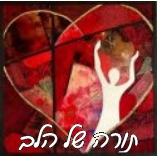
[ Our Torah reading this week includes the giving of the Ten Commandments at Sinai...]
02.02.24 (Shevat 23, 5784) The last of the Ten Commandments is the Tenth Commandment not to covet or to want things that are not yours. The Hebrew word translated "covet" in many translations (i.e., chamad: חמד) usually refers to selfish desire or lust (e.g., "Lust not after her beauty in thine heart..." Prov. 6:25), and thus speaks directly to the heart's innermost intention, which, even if unacknowledged by ourselves, is always revealed before God: "Your Father who sees in secret" (Matt. 6:6). On the other hand, selfish desire can - if we are willing to be honest with ourselves - reveal to ourselves the condition of our hearts and thus mark our need for deliverance from the power of sin. As the Apostle Paul wrote to the believers in Rome: "I had not known sin ...except the law had said, 'Thou shalt not covet'" (Rom. 7:7). Inner peace or contentment is the blessing that comes from surrendering your desires to God, letting go of your envy, and receiving your daily bread with humility and gratitude... It is the way to simchah (שִׂמְחָה), or "happiness."
Hebrew Podcast
Exodus 20:17 Hebrew reading:
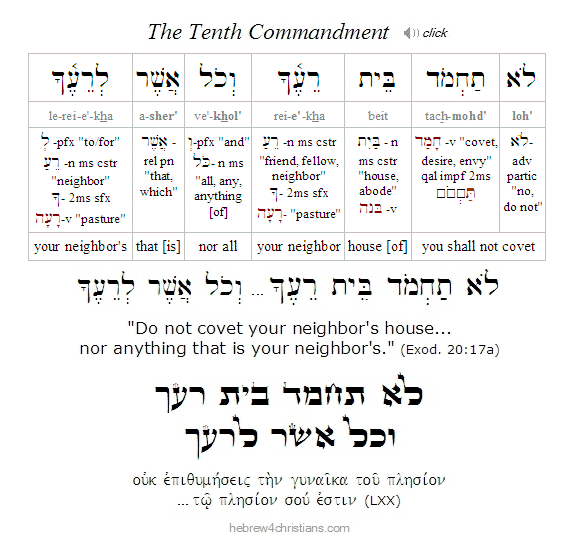 |
Live the Truth:
The Ninth Commandment...

02.02.24 (Shevat 23, 5784) The Ninth Commandment prohibits swearing falsely against your neighbor in matters of law and civil proceedings, but, on a deeper level, it implicitly indicates the responsibility to be a witness of the truth at all times. Note that the Hebrew word for "truth" (emet) is composed from the first, the middle, and the last letters of the Hebrew Alphabet, thus indicating that it encompasses the first things, the last things, and everything in between. Thus, in relation to our neighbor (who is really everyone), we are to be truthful and bear witness to the truth in all our moments of life.
Hebrew Lesson
Exodus 20:16 Hebrew reading:
Love gives to others:
The Eighth Commandment...

02.02.24 (Shevat 23, 5784) The Eighth Commandment against stealing (לא תגנב, Exod. 20:15) corresponds to the third commandment not to profane God's name. Stealing, in the sense of the Hebrew word ganav (גנב), refers to both the act of carrying off by stealth that which is not one's own (i.e., theft), but also to the deceptive inner disposition that accompanies the action (genevat da'at: גְנֵבַת דַעַת). And ultimately that deceptive inner disposition is a form of self-deception. After all, none of us categorically "owns" anything, since God alone is the Creator and Giver of all of life. Stealing arrogantly (and vainly) attempts to seize some "thing" and to claim it for oneself - blindly disregarding the fact that "in Him we live and move and have our being" (Acts 17:28).
Hebrew Lesson
Exodus 20:15 Hebrew reading:
Choose true love:
The Seventh Commandment...

[ This week we are reviewing the Ten Commandments at Sinai...]
02.02.24 (Shevat 23, 5784) The sages say that the Seventh Commandment prohibition against adultery (לא תנאף, Exod. 20:14) corresponds to the Second Commandment prohibition against idolatry. Adultery refers to sexual union between a married person and someone other than his or her spouse (fornication, on the other hand, is also prohibited in the Scriptures though it is a broader term that refers to any sort of sexual contact outside the covenant of marriage). The penalty for adultery is severe (see Deut. 22:22, Lev. 20:10).
From the verse, "The adulterer waits for twilight saying, No eye shall see me" (Job 24:15), the Talmud infers the adulterer to be a practical atheist, since he does not say, "No man shall see me, but no eye - neither the eye of one below nor the eye of Him above."
Adultery is a grave sacrilege, since it not only violates the sworn promise of parties to a sacred covenant, but perverts the picture of our union with God Himself. As Paul wrote to the believers at Ephesus, "We are members of his body, of his flesh, and of his bones. For this cause shall a man leave his father and mother, and shall be joined unto his wife, and they two shall be one flesh. This is a great mystery: but I speak concerning Messiah and the church" (Eph. 5:30-32). This is why apostasy is likewise likened to spiritual adultery...
Hebrew Lesson
Exodus 20:14 reading (click for audio):
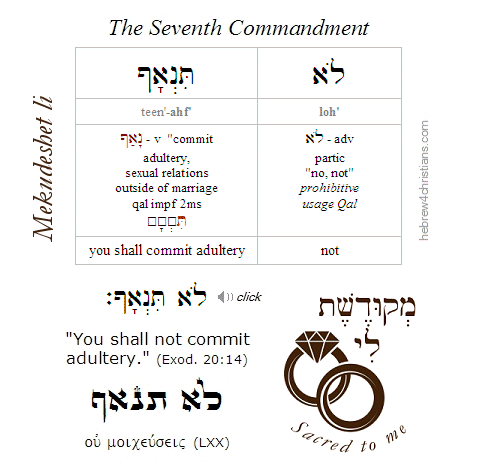 |
Turn to God and be Saved...
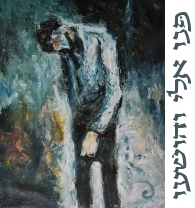
02.01.24 (Shevat 22, 5784) "Turn to me and be saved, all the ends of the earth!" (Isa. 45:22). Though the LORD graciously seeks and saves the lost, He calls us to return to Him and be saved. This is the challenge we face, and on a daily basis, to truly turn to the LORD... And yet when we do, when we center all our heart in him, we experience salvation. All that oppresses us, all our fears and troubles begin to fade from view and we find refuge: "And when they had lifted up their eyes, they saw no man, but Yeshua only" (Matt. 17:8).
Rouse yourself, therefore, and return to the LORD. Look to Him now and earnestly seek His face. If ever there was a time to wear a sign board proclaiming that "the end is near" it is today, in the course of this generation. As the LORD appealed to apostate Judah in the time of Isaiah, so the appeal resounds to our day: "Why should ye be stricken any more? ye will revolt more and more: the whole head is sick, and the whole heart faint. From the sole of the foot even unto the head there is no soundness in it; but wounds, and bruises, and putrifying sores: they have not been closed, neither bound up, neither mollified with ointment. Your country is desolate, your cities are burned with fire: your land, strangers devour it in your presence, and it is desolate, as overthrown by strangers" (Isa. 1:5-7).
We only have this hour. Today is the day... No matter what may beset your way, no matter the buffeting gale of your shame, no matter the wound you have made of your life -- return to the outstretched arms of Yeshua's mercy extended for your salvation. "As far as the east is from the west, so far has He removed our transgressions from us," which is to say that He welcomes you into the utmost depths of his heart, to know and love Him forever... He promises that the one who comes to Him will never be refused (John 6:27). Friend, heed the Spirit's invitation and receive the salvation of the LORD.
Hebrew Lesson
Isaiah 45:22 reading (click):
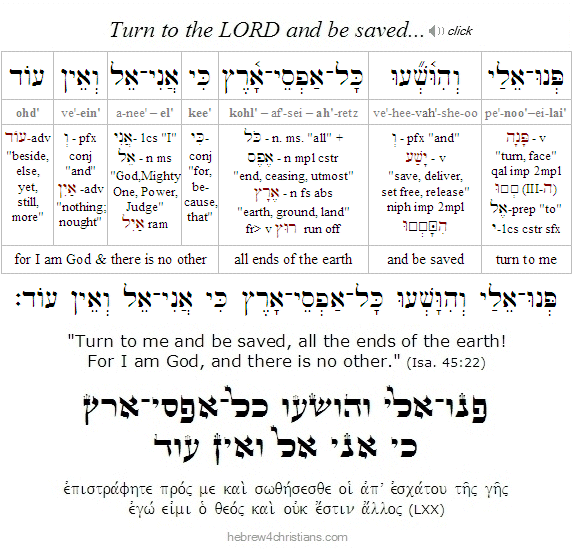 |
Do no harm:
The Sixth Commandment...

[ The following is related to Parashat Yitro and the giving of the Ten Commandments at Sinai...]
02.01.24 (Shevat 22, 5784) The Mechilta (a halakhic midrash on Exodus) teaches that the Ten Commandments were divided into two groups with the first five on one tablet and the second five on the other, and that these correspond to one another so that, for instance, the Sixth Commandment (לא תרצח, "you shall not murder"; Exod. 20:13) is linked to the first commandment to believe in God (Exod. 20:2). Since man is made in the image of God, his life is infinitely precious, and only God Himself has the right to give and take life.
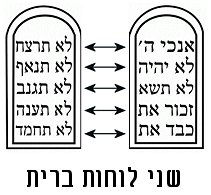 |
In the Mishnah it is written, "Why was only one man (i.e., Adam) created by God? - to teach that whoever takes a single life destroys thereby a whole world; and whoever saves one life, the Scripture accounts it as though a whole world had been saved (Sanhedrin 4:5). But murder can be figurative as well as literal. The Talmud notes that shaming another publicly is like murder, since shame causes blood to leave the face. Moreover, gossip or slander are considered murderous to the dignity of man. The Ethics of the Fathers states, "The evil tongue slays three persons: the utterer of the evil, the listener, and the one spoken about." Yeshua also linked the evil intent of our words with murder (see Matt. 5:21-22; 15:19).
Hebrew Lesson
Exodus 20:13 Hebrew reading:
Respecting your history:
The Fifth Commandment...

[ This week we are reviewing the Ten Commandments at Sinai...]
02.01.24 (Shevat 22, 5784) The first four of the Ten Commandments (עשרת הדברות) focus on our relationship with God, and it is only through obedience to these commandments that we are able to really understand our own identity - as well as the identity of others in our family, our community, and our world. The Fifth Commandment, to honor your parents, bridges the commandments directed heavenward (bein adam la'makom) with those directed toward one's fellow man (bein adam le'chavero).
Honoring our parents teaches us the first principles of honoring God and others; it is the fulcrum by which we learn empathy and "derekh eretz" (דרך ארץ), that is, the basic respect that underlies courtesy and good manners. The importance of this commandment cannot be overstated, since the word translated "honor" (i.e., kabed: כבד) derives from a root word meaning "weighty" (in terms of impressiveness or importance) and is often used to refer to the glory of God. The meaning of kabed in this context derives from the preceding verses (i.e., the first four commandments) which center on honoring God Himself. When we likewise honor our father and mother, the LORD says, "I reckon it as though I dwelled with them and they honored Me" (Kiddushin 31a).
Hebrew Lesson
Exodus 20:12a reading (click for audio):
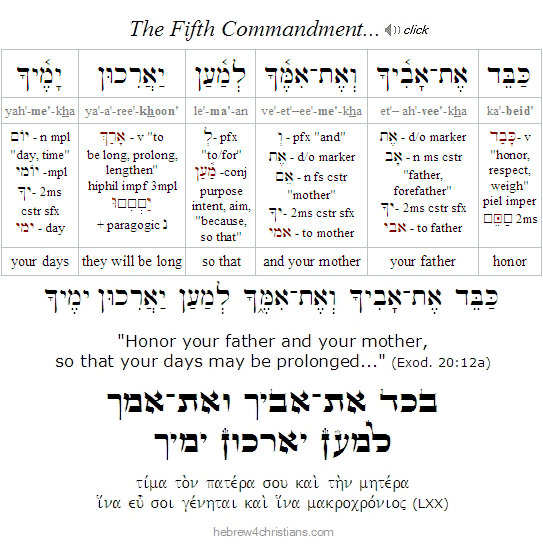 |
Affirmation: "O Lord, grant me your heart and passion for the good of all people..."
Borne by the Spirit...

[ "The sin underneath all our sins is to believe the lie of the serpent that we cannot trust the love and grace of Christ and must take matters into our own hands" - Martin Luther ]
02.01.24 (Shevat 22, 5784) Sin is defined as the transgression of Torah (i.e., ἀνομία) in the Scriptures (1 John 3:4), and at root such rebellion comes from an unwillingness to trust that what God wants is your deepest happiness. Because of this, sin goes "out of bounds" and expresses itself as the desire to control one's life, to define "the good" (or the bad) on its own terms: to "eat of the tree of the knowledge of good and evil" (Gen. 2:17).
Surrender, on the other hand, gives up control and relies upon God's care. It relaxes because it accepts God's love as a gift and not as something to be earned. Meister Eckhart said it this way, "God is not attained by a process of addition to anything in the soul, but by a process of subtraction." In other words, we don't need to do anything to be free, though we must "get out of the way" for the Holy Spirit to do the work in us. "If the Son shall set you free, you shall be free indeed" (John 8:36). Set us free, O precious Lord!
Hebrew Lesson
Proverbs 3:5-6 Hebrew reading (click):
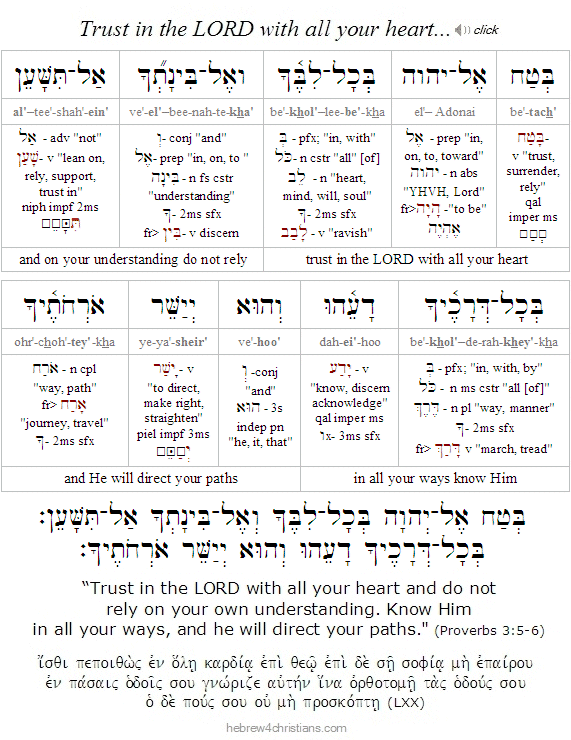 |
The Good Fight of Faith...
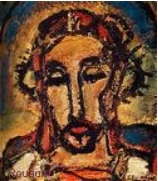
02.01.24 (Shevat 22, 5784) An old story tells that a person died and stood before God. God then asked, "Where are your wounds?" The person answered, "What wounds? I have none." God said, "Was there nothing worth fighting for?"
The struggle of faith is infinitely and everlastingly worth it, friends! "Fight the good fight of the faith. Take hold of the eternal life to which you were called" (1 Tim. 6:12). "Our momentary, light suffering is producing for us an eternal weight of glory far beyond all comparison" (2 Cor. 4:17); "for I consider that our present sufferings cannot even be compared to the glory that will be revealed to us" (Rom. 8:18). "We have an inheritance imperishable, undefiled, and unfading, reserved in heaven for you, even though you may be grieved for a short season by various trials" (1 Pet. 1:4-6).
So be strong in the Lord and in the power of his might; hold fast to your confession and persevere in your journey, despite the challenges and wounds along the way. God is faithful; he will bring you safely back home....
Hebrew Lesson
Lamentations 3:22-23 Hebrew reading:
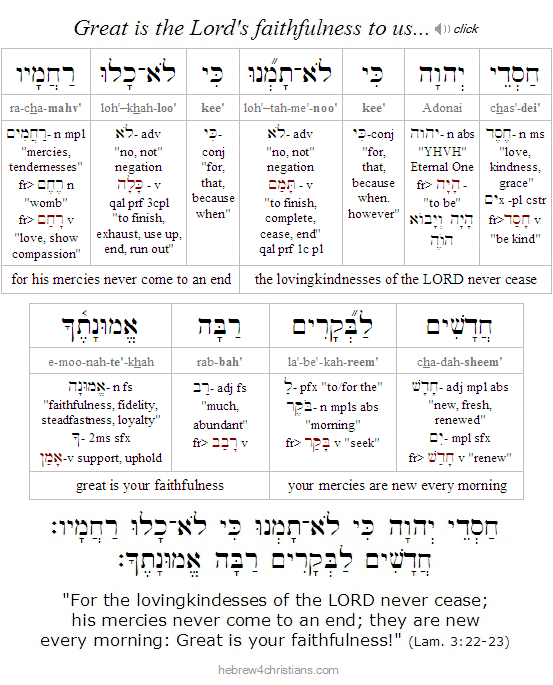 |
Identifying the Sacred:
The Fourth Commandment...

[ The following is related to Parashat Yitro and the giving of the Ten Commandments at Sinai...]
02.01.24 (Shevat 22, 5784) The Fourth Commandment is to "remember" (i.e., zakhor: זכוֹר) the Sabbath day for holiness (Exod. 20:8). We are to set aside, that is, regard as sacred, the seventh day as an acknowledgment that God is both our Creator (Exod. 20:11) and our Savior (Deut. 5:15). By "remembering" the Sabbath we understand other days of the week in relation to it, the "first day" until the Sabbath, the "second day" until the Sabbath, and so on until we reach the Sabbath itself which marks an appointed time of sanctity and rest (i.e., menuchah: מנוחה). Some of the Jewish mystics came to regard the Sabbath not so much as a "day" in the usual sense but rather a spiritual "atmosphere" to be welcomed and greeted as beloved (לכה דודי). The fourth commandment also includes the restriction from doing profane activities (i.e., melachah: מלאכה): "you shall not do any labor" because Shabbat is time set apart for holy pursuits, for family connections, and for healing rest. God blessed the seventh day and sanctified it so that there would special provision from heaven to honor this time (Exod. 16:22). So important is the Sabbath day that God emphatically repeated the commandment just before he gave the tablets of the law to Moses (Exod. 31:13-18).
The Sabbath is a delight – not a burden; a time for celebrating your personal rest in our Messiah Yeshua (Isa. 58:13; Heb. 4:9). Indeed, all those who honor the Sabbath - including the "foreigners" of Israel - will be given a name that is "better than sons and daughters" that will never be cut off (Isa. 56:3-8). Moreover, Sabbath will be honored in the Millennial Kingdom to come: "From new moon to new moon, and from Sabbath to Sabbath, all flesh shall come to worship before me, declares the LORD" (Isa. 66:23). Indeed the blessing of the Sabbath will be honored in the heavenly Jerusalem itself! (Rev. 22:2).
Hebrew Lesson
Exodus 20:8 on the Sabbath day (commentary):
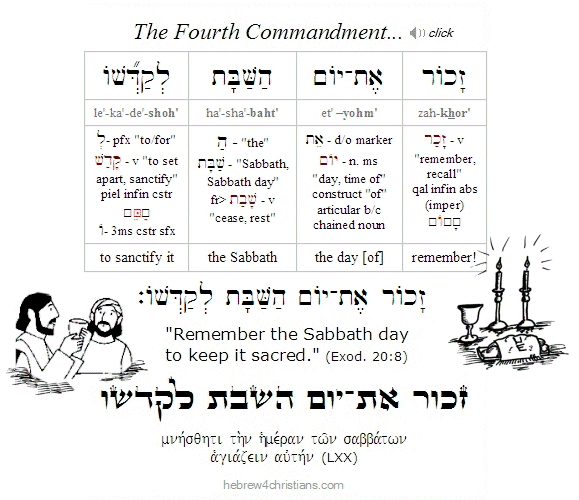 |
A Prayer:
O Lord, my Heavenly Father, I am all of need, all of brokenness, all of emptiness, all of weakness before You. I call out from the depths; O Lord, hear my prayer... For you alone are my Healer; you alone are the Source of all my hope. Whom have I in heaven but Thee? Without you I am as nothing, but with you I can leap as a hart over a wall; I can run and not be weary, I can walk and not faint...
You are the fountain of life; in your light I see light; in your consolations I find strength. Break forth your streams in my desert places; set my feet upon the highway of your holiness; direct my heart toward Zion with songs of praise upon my lips, with songs and everlasting joy. Let sorrow and sighing flee away in the compass of your peace, O Lord.
Thank you for being my salvation, O Lord God, and for attending to my heart's cry for you. Thank you for being all I need for everything you call me to be. Help me to rest by trusting in the gift of your life, your love, your passion. O Lord, I surrender to your love for me; thank you for your care... Amen.
Affirmation: "O Lord, help me to seek the beauty of your holiness always..."
<< Return
|

























